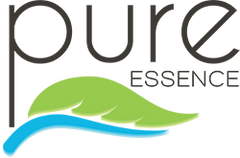Found growing on every continent, milk thistle may be one of the most commonly known healing herbs. This unique plant is visually familiar thanks to its distinctive purple flowers protected by prickly bracts and leaves intricately patterned with white veins.
Despite its barbed appearance, this native European thistle has been used for its medicinal properties for over 2000 years. This may, in part, be due to ancient traditional stories, which believed that its white veins were milk from the Virgin Mary, making it a Holy healing plant.
However, milk thistle also has scientific merit. It is a source of many nutrients, including calcium, potassium, chloride, and phosphorus. But the secret behind the potent properties of milk thistle is a group of plant compounds collectively known as silymarin.
The silymarin extracted from milk thistle is known to have potent antioxidant, antiviral and anti-inflammatory properties. Because of this, it has been used to treat liver and gallbladder disorders, promote breast milk production, and prevent and treat cancer. [1]
And that’s only the beginning. Science has shown that there are many health benefits provided by milk thistle.
6 Science-Backed Health Benefits of Milk Thistle
1. Provides Liver SupportMilk thistle is often advertised for its liver-protecting effects.
The liver is the body’s largest internal organ. Its main job is to filter the blood coming from the digestive tract before passing it to the rest of the body. It also detoxifies chemicals and metabolizes drugs. Everything we consume passes through it, including alcohol, processed foods, prescription drugs, etc.
The silymarin from milk thistle has been shown to help improve liver function and act as a blood purifier to help remove toxins.
2. Reduces Age-Related Decline in Brain FunctionMilk thistle is high in antioxidants and can serve many neuroprotective functions. According to research, it can provide neurological support for conditions such as Alzheimer's, cerebral ischemia, and Parkinson's disease. [2]
Moreover, in a 2017 review, researchers stated that Silymarin acts as a neuroprotective agent when defending against neural diseases caused by neuroinflammation and oxidative stress. [3]
3. Protects BonesWhen it comes to supporting bone health, calcium and vitamin D are some of the most important nutrients you need, but they're not the only ones that can help.
Milk thistle also plays a notable role in enhancing bone health. A 2013 research study proved that milk thistle played a remarkable role in lowering estrogen deficiency-induced osteoporosis. [4]
Moreover, in another study, taking Silymarin showed antiosteoporotic effects on bone structure and prevented bone loss. [5]
4. Improves the Effects of Cancer TreatmentCancer treatments are pretty tough to handle. Hence, we always lookout for ways to prevent cancer in the first place. One of these preventions includes milk thistle.
The antioxidant properties of milk thistle may have anti-neoplastic and anti-cancer effects. Studies show that Silymarin stabilizes cellular membranes, leads cytotoxic activity to kill cancer cells, and increases the effects of chemotherapy agents. Moreover, milk thistle is also known to reduce the side effects of cancer treatments.
5. Boosts ImmunitySilymarin from milk thistle gets your immune system charged up by reducing inflammation, fighting free radicals, and suppressing immunotoxicity. According to research, Silymarin impacts the immune system through its efficient immunomodulatory functions and can be used optimally to treat immune-mediated diseases. [6]
6. Reduces CholesterolMilk thistle assists in lowering LDL (bad) cholesterol levels and increasing regular blood flow. Researchers tested rats by providing them with a high cholesterol diet and giving some of them silybin. [7] The results indicated that rats given the silybin supplementation had more HDL cholesterol and lower LDL cholesterol.

Is Milk Thistle Safe?
Many high-quality supplements contain milk thistle extracts in them. Those supplements can help you on your way to a life of optimal well-being.
However, milk thistle is not for everyone. As with any other supplement, it is beneficial to consult your healthcare practitioner before adding it to your diet. Those who should be extra cautious are:
- Those who are allergic to the milk thistle's plant family (ragweed, chrysanthemums, chamomile, yarrow, marigolds, and daisies)
- People with diabetes (due to the blood sugar-lowering effects of milk thistle)
- Women with hormone-sensitive conditions (milk thistle can have estrogenic effects)
There have been some reports of minor gastrointestinal problems after taking milk thistle supplements, such as nausea (vomiting), heartburn, and upset stomach, but overall, it is generally considered safe.
Sources
[1] Abenavoli, Ludovico et al. “Milk thistle in liver diseases: past, present, future.” Phytotherapy research : PTR vol. 24,10 (2010): 1423-32. doi:10.1002/ptr.3207
[2] Borah, Anupom et al. “Neuroprotective potential of silymarin against CNS disorders: insight into the pathways and molecular mechanisms of action.” CNS neuroscience & therapeutics vol. 19,11 (2013): 847-53. doi:10.1111/cns.12175
[3] Devi, Kasi Pandima et al. “A Mini Review on the Chemistry and Neuroprotective Effects of Silymarin.” Current drug targets vol. 18,13 (2017): 1529-1536. doi:10.2174/1389450117666161227125121
[4] Kim, Jung-Lye et al. “Antiosteoclastic activity of milk thistle extract after ovariectomy to suppress estrogen deficiency-induced osteoporosis.” BioMed research international vol. 2013 (2013): 919374. doi:10.1155/2013/919374
[5] Mohd Fozi, Nur Farhana et al. “Milk thistle: a future potential anti-osteoporotic and fracture healing agent.” Current drug targets vol. 14,14 (2013): 1659-66. doi:10.2174/13894501113146660222
[6] Esmaeil, Nafiseh et al. “Silymarin impacts on immune system as an immunomodulator: One key for many locks.” International immunopharmacology vol. 50 (2017): 194-201. doi:10.1016/j.intimp.2017.06.030
[7] Gobalakrishnan, Senthil et al. “Effect of Silybin on Lipid Profile in Hypercholesterolaemic Rats.” Journal of clinical and diagnostic research : JCDR vol. 10,4 (2016): FF01-5. doi:10.7860/JCDR/2016/16393.7566

